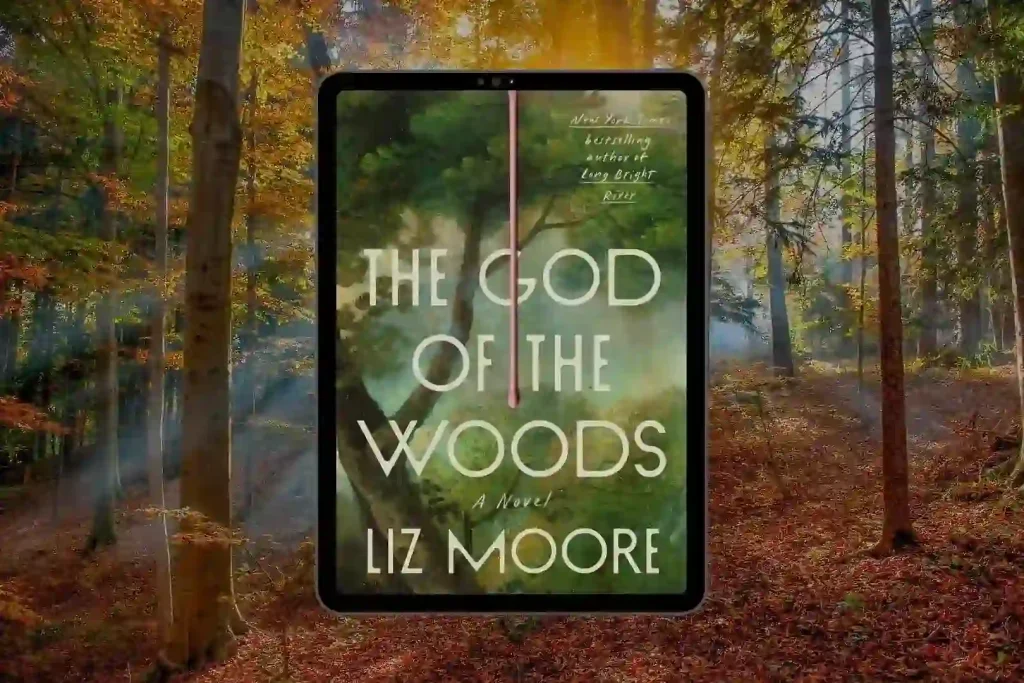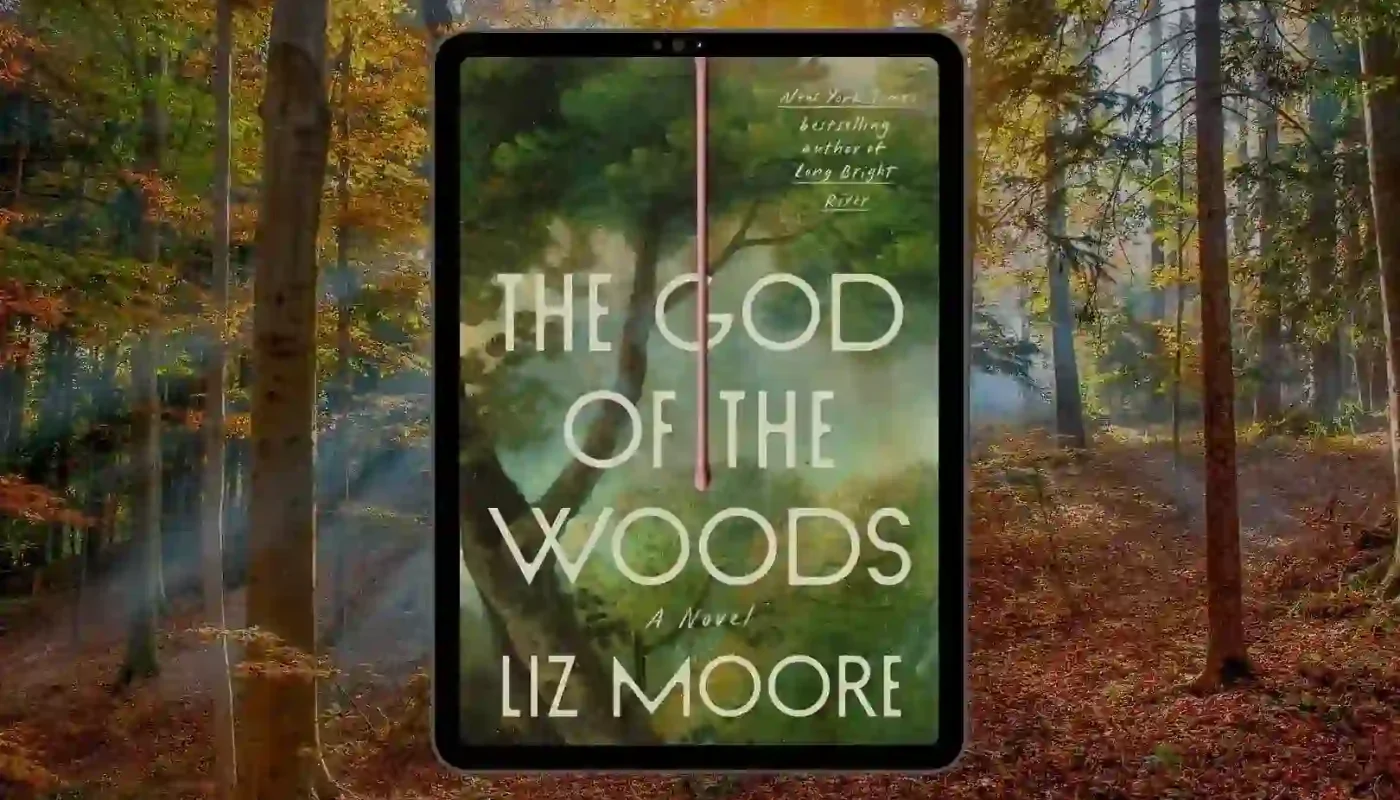The God Of The Woods is the latest literary triumph from acclaimed author Liz Moore, known for her emotionally layered storytelling and compelling suspense. With a richly woven narrative that blends mystery, family drama, and literary depth, this novel has captured the attention of readers and critics alike. In this article, we’ll explore a detailed synopsis of The God Of The Woods, analyze its genre, highlight key characters, share reviews, and explain how it fits within the broader scope of Liz Moore books.

Content
Synopsis Of The God Of The Woods
Set in the summer of 1975, The God Of The Woods begins with the disappearance of Barbara Van Laar, a teenage girl from a wealthy and influential family. Her family owns an exclusive summer camp nestled deep in the Adirondack Mountains. As law enforcement begins their search, secrets that have long been buried start to surface—secrets that threaten the carefully maintained image of the Van Laar legacy.
The narrative moves between past and present, unraveling another traumatic event from years before. Told through multiple perspectives, the story reveals how power, silence, and guilt shape not only one family’s fate but an entire community.
The God Of The Woods Genres: A Masterful Blend
While The God Of The Woods is rooted in mystery, it extends beyond typical genre expectations. It gracefully weaves together:
- Mystery and Psychological Thriller
- Literary Fiction
- Historical Fiction
- Family Drama
- Coming-of-Age Elements
This genre fusion offers a reading experience that is both intellectually engaging and emotionally resonant. The novel appeals to readers who enjoy a balance of gripping narrative with nuanced character studies.
The God Of The Woods Characters: Complex and Compelling
One of the most praised aspects of The God Of The Woods is its vivid and multidimensional characters. Liz Moore brings emotional depth and realism to each figure in the story.
- Barbara Van Laar – A smart and independent teenager whose sudden disappearance sets the plot in motion. Her character is central yet elusive, with layers slowly revealed through the eyes of others.
- Adam Van Laar – Barbara’s father, burdened by responsibility and past mistakes. His relationship with his daughter is riddled with unspoken tensions.
- Kathryn Van Laar – The cold and distant mother, who hides a complex emotional world behind her reserved demeanor.
- Detective Judy Whalen – A persistent and empathetic investigator determined to uncover the truth, even as it pulls her into personal moral conflict.
- Supporting Cast – Camp counselors, local law enforcement, and townspeople all play crucial roles in revealing the social dynamics at play.
Each character contributes to the story’s tension and emotional weight, showing how personal histories can quietly influence present actions.
The God Of The Woods Summary: More Than Just a Disappearance
At its heart, The God Of The Woods is about more than a missing girl. It’s a story about buried pain, fractured family bonds, and the long shadows cast by past decisions. Through dual timelines, the novel slowly uncovers the emotional and psychological wounds shared by its characters.
As the investigation into Barbara’s disappearance deepens, so too does the exploration of themes like power, privilege, silence, and redemption. The final chapters deliver a quiet yet powerful emotional punch, making this novel as much about healing as it is about solving a mystery.
The God Of The Woods Reviews: What Readers and Critics Are Saying
The response to The God Of The Woods has been overwhelmingly positive. Critics praise its lyrical writing, emotional depth, and masterful pacing, while readers commend its atmospheric setting and complex characters.
“A haunting and elegantly written novel that explores the darkest corners of privilege and loss.” – The New York Times
“Moore’s finest work yet—both emotionally charged and intricately plotted.” – Kirkus Reviews
“This isn’t just a mystery—it’s a literary excavation of memory and trauma.” – BookPage
On platforms like Goodreads and Amazon, The reviews highlight the book’s emotional resonance and thoughtful structure. Some readers note the slower pace in early chapters, but most agree the story becomes deeply rewarding by the end.
How It Compares With Other Liz Moore Books
For those familiar with Liz Moore books, this novel will feel both familiar and new. Like her previous bestseller Long Bright River, Moore delves into complex family dynamics and societal issues while delivering a tightly crafted mystery.
What distinguishes The God Of The Woods is its historical setting and exploration of generational trauma. Moore continues to prove herself as a master of combining thought-provoking themes with page-turning suspense.
Final Thoughts
The God Of The Woods is a novel that lingers long after the final page. With beautifully drawn characters, a moody atmospheric setting, and a mystery that digs into the emotional roots of a family, this book offers more than entertainment—it invites reflection.
Whether you’re a fan of psychological thrillers, literary fiction, or emotional dramas, this book deserves a place on your reading list. Liz Moore has once again demonstrated why her work continues to captivate and challenge readers.
If you enjoy mythological retellings with dark romantic twists, don’t miss our review of A Touch Of Darkness.
FAQs
What is the plot of The God Of The Woods?
A teenage girl vanishes from an elite summer camp in 1975, unraveling dark family secrets and past traumas.
Is The God Of The Woods worth reading?
Yes, it’s a gripping literary mystery with rich characters, emotional depth, and haunting suspense.
Is The God Of The Woods a true story?
No, the novel is entirely fictional, though it explores realistic themes of privilege, loss, and generational silence.
Is God Of The Woods becoming a movie?
As of now, there’s no official movie adaptation announced, but its cinematic plot makes it a strong candidate.

Julius’s the resident literary connoisseur. He dissects classics and uncovers hidden gems. Expect his insights to enrich your reading journey, one page at a time.



